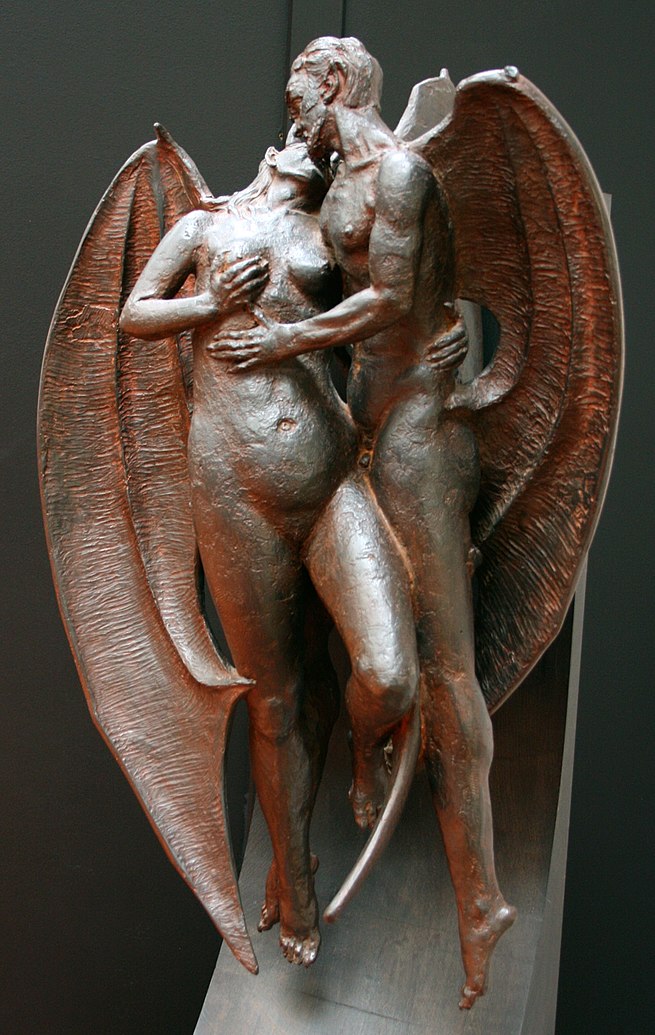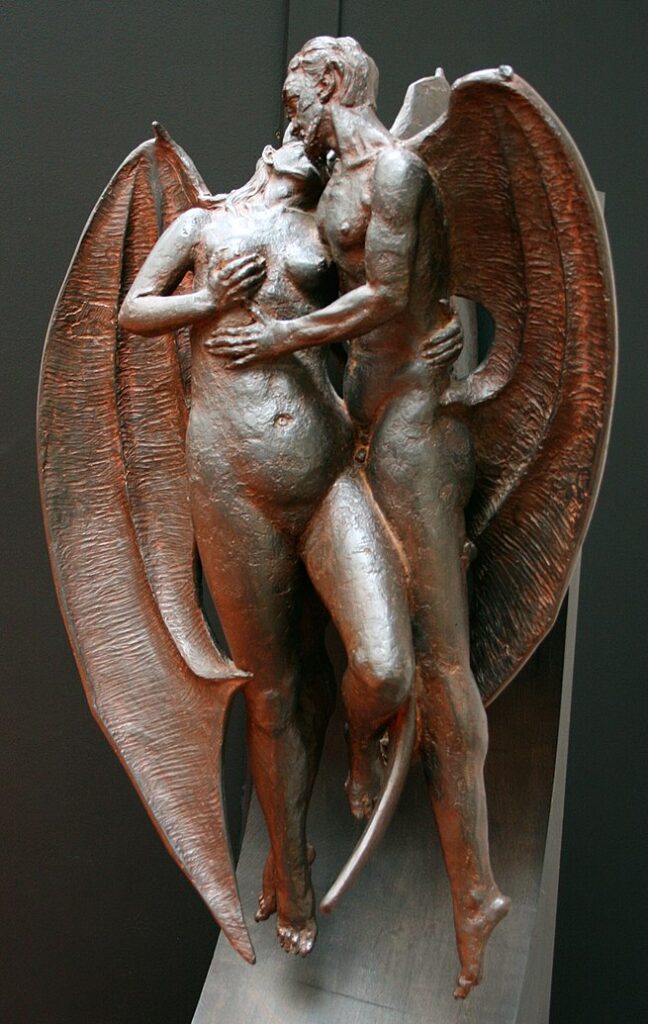
Main Difference
The main difference between Devil and Demon is that the Devil is a supernatural entity that is the personification of evil and the enemy of god and humankind and Demon is a paranormal, often malevolent being prevalent in religion, occultism, mythology, and folklore.
-
Devil
A devil is the personification of evil as it is conceived in many and various cultures and religious traditions. It is seen as the objectification of a hostile and destructive force.It is difficult to specify a particular definition of any complexity that will cover all of the traditions, beyond that it is a manifestation of evil. It is meaningful to consider the devil through the lens of each of the cultures and religions that have the devil as part of their mythos.The history of this concept intertwines with theology, mythology, psychiatry, art and literature, maintaining a validity, and developing independently within each of the traditions. It occurs historically in many contexts and cultures, and is given many different names — Satan, Lucifer, Beelzebub, Mephistopheles — and attributes: It is portrayed as blue, black, or red; It is portrayed as having horns on its head, and without horns, and so on. The idea of the devil has been taken seriously often, but not always, for example when devil figures are used in advertising and on candy wrappers.
-
Demon
A demon (from Koine Greek δαιμόνιον daimónion) is a supernatural and often malevolent being prevalent in religion, occultism, literature, fiction, mythology and folklore.
The original Greek word daimon does not carry such negative connotations. The Ancient Greek word δαίμων daimōn denotes a spirit or divine power, much like the Latin genius or numen. The Greek conception of a daimōn notably appears in the works of Plato, where it describes the divine inspiration of Socrates.
However, in Ancient Near Eastern religions as well as in the Abrahamic traditions, including ancient and medieval Christian demonology, a demon is considered a harmful spiritual entity which may cause demonic possession, calling for an exorcism.
In Western occultism and Renaissance magic, which grew out of an amalgamation of Greco-Roman magic, Jewish Aggadah and Christian demonology, a demon is believed to be a spiritual entity that may be conjured and controlled.
-
Devil (noun)
An evil creature.
-
Devil (noun)
(the devil or the Devil) The chief devil; Satan.
-
Devil (noun)
The bad part of the conscience; the opposite to the angel.
“The devil in me wants to let him suffer.”
-
Devil (noun)
A wicked or naughty person, or one who harbors reckless, spirited energy, especially in a mischievous way; usually said of a young child.
“Those two kids are devils in a toy store.”
-
Devil (noun)
A thing that is awkward or difficult to understand or do.
“That math problem was a devil.”
-
Devil (noun)
Hell.
“What in the devil is that? What the devil is that?”
“She is having a devil of a time fixing it.”
“You can go to the devil for all I care.”
-
Devil (noun)
A person, especially a man; used to express a particular opinion of him, usually in the phrases poor devil and lucky devil.
-
Devil (noun)
A dust devil.
-
Devil (noun)
An evil or erring entity.
-
Devil (noun)
A barren, unproductive and unused area.
“devil strip”
-
Devil (noun)
A dish, as a bone with the meat, broiled and excessively peppered; a grill with Cayenne pepper.
-
Devil (noun)
A machine for tearing or cutting rags, cotton, etc.
-
Devil (noun)
A Tasmanian devil.
-
Devil (noun)
An endurance event where riders who fall behind are periodically eliminated.
-
Devil (verb)
To make like a devil; to invest with the character of a devil.
-
Devil (verb)
To annoy or bother; to bedevil.
-
Devil (verb)
To work as a ‘devil’; to work for a lawyer or writer without fee or recognition.
-
Devil (verb)
To grill with cayenne pepper; to season highly in cooking, as with pepper.
-
Devil (verb)
To finely grind cooked ham or other meat with spices and condiments.
-
Devil (verb)
To prepare a sidedish of shelled halved boiled eggs to whose extracted yolks are added condiments and spices, which mixture then is placed into the halved whites to be served.
-
Demon (noun)
An evil supernatural spirit.
-
Demon (noun)
An evil spirit resident in or working for Hell; a devil. from 10th c.
-
Demon (noun)
A false god or idol; a Satanic divinity. from 10th c.
-
Demon (noun)
A very wicked or malevolent person; also in weakened sense a mischievous person, especially a child. from 16th c.
-
Demon (noun)
A source (especially personified) of great evil or wickedness; a destructive feeling or character flaw. from 17th c.
“The demon of stupidity haunts me whenever I open my mouth.”
-
Demon (noun)
A neutral supernatural spirit.
-
Demon (noun)
A person’s anxieties. from 19th c.
-
Demon (noun)
A person’s inner spirit or genius; a guiding or creative impulse. from 14th c.
-
Demon (noun)
A tutelary deity or spirit intermediate between the major Olympian gods and mankind, especially a deified hero or the entity which supposedly guided Socrates, telling him what not to do. from 16th c.
-
Demon (noun)
A spirit not considered to be inherently evil; a (non-Christian) deity or supernatural being. from 19th c.
-
Demon (noun)
Someone with great strength, passion or skill for a particular activity, pursuit etc.; an enthusiast. from 19th c.
“He’s a demon at the card tables.”
-
Demon (noun)
A form of patience (known as Canfield in the US). from 19th c.

